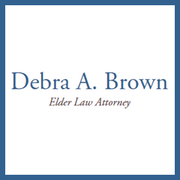
Being appointed executor of an estate comes with a great deal of responsibility, which can be an intimidating role to fulfill if you aren’t prepared for what to expect. After your loved one has passed away, you’ll be in charge of wrapping up their affairs and making sure their will is carried out as intended. You may also be required to represent the estate in probate court if the validity of the will needs to be confirmed. Here are some of the most common duties an executor has.
An Executor’s Checklist of Responsibilities
1. Locate the Will & File It in Probate Court
As an estate executor, you’ll need to locate the decedent’s will and file it in probate court within 30 days of their death. Even if the estate doesn’t have to go through probate, the court must still obtain a copy of the will for their records. You’ll also have to get copies of the death certificate and notify the bank, government agencies, and credit card companies of your loved one’s passing.
2. Inventory & Maintain the Decedent’s Property
As the executor, you must account for the decedent’s personal property, provide the probate court with an inventory, and keep it safe and secure until it’s distributed. You may also have to decide whether or not to sell any assets and determine if certain valuables should be appraised.
3. Pay the Estate’s Ongoing Expenses, Debts, & Taxes
 Until the estate is closed, the executor must also ensure the payments of any of the decedent’s outstanding expenses associated with their assets, such as a mortgage, utilities, and insurance premiums. You’ll communicate with creditors to decide how debts will be handled. All applicable tax liabilities will also need to be resolved before assets can be distributed. Your role as executor will include setting up a bank account in the estate’s name to pay these bills.
Until the estate is closed, the executor must also ensure the payments of any of the decedent’s outstanding expenses associated with their assets, such as a mortgage, utilities, and insurance premiums. You’ll communicate with creditors to decide how debts will be handled. All applicable tax liabilities will also need to be resolved before assets can be distributed. Your role as executor will include setting up a bank account in the estate’s name to pay these bills.
4. Manage Asset Distribution
Once all expenses have been paid, you must contact everyone named in the decedent’s will to inform them of their inheritance. Then, you’ll ensure each beneficiary receives their designated assets. If anything is left over, you must decide what to do with it.
Settling a loved one’s estate involves many complex tasks and can be challenging to deal with alone. Fortunately, attorney Debra A. Brown is available to guide you through this process. She offers more than 30 years of estate planning and probate experience to residents throughout Litchfield County, CT. You can count on her for the support and representation you need to accomplish your executor responsibilities. Call (860) 496-7717 to schedule a consultation, or visit her online to learn more about the legal services she provides.
About the Business
Have a question? Ask the experts!
Send your question

